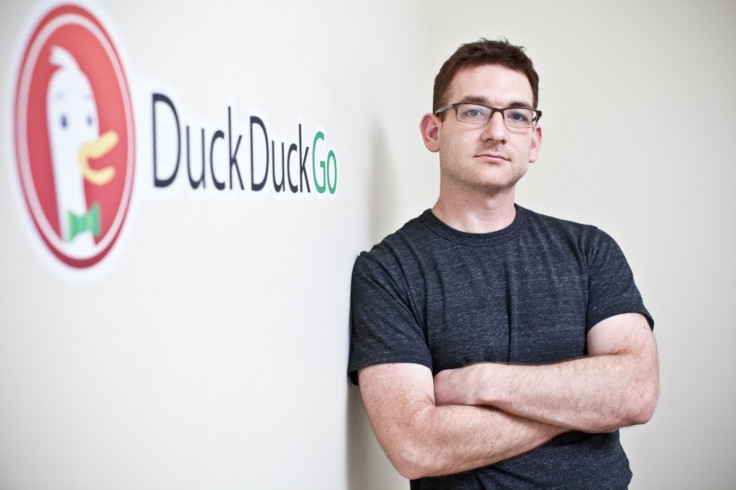DuckDuckGo CEO: 'It's a myth you need to track people to make money in web search'

The CEO and founder of DuckDuckGo has revealed that the privacy-focused search engine is making a profit despite not tracking its users' online activity and search history. Gabriel Weinberg took to YCombinator's Hacker News to conduct an AMA (ask me anything) on 7 October, making a dig at Google and other major search engines by claiming that privacy does not need to be sacrificed for profitability.
"DuckDuckGo is actually profitable. It is a myth you need to track people to make money in web search," Weinberg said during the AMA session. "Most of the money is still made without tracking people by showing you ads based on your keyword, i.e. type in 'car' and get a car ad.
"These ads are lucrative because people have buying intent. All that tracking is for the rest of the internet without this search intent, and that's why you're tracked across the internet with these same ads."
Weinberg also revealed that the traffic coming from the anonymous web browser Tor was "not significant" yet but that he would like it to be a lot more.
Privacy awareness post-Snowden
One of the key factors to DuckDuckGo's recent growth, according to Weinberg, was the mass surveillance revelations from former NSA contract worker Edward Snowden. Another factor cited for causing a spike in adoption rates included Google's 2012 decision to change its privacy policy to allow tracking across all of its services.
Research published earlier this year by the think-tank Pew Research Center (PRC) revealed that between 38% and 54% of US adults surveyed did not want their search engine provider to save any information about their activity. The difference in the proportion of web users who cared about their activity being tracked depended on how much they had heard about government surveillance.
The PRC report said that the government surveillance revelations brought new attention to the debate on how best to realise online privacy in the digital age. While some people surveyed said that widespread surveillance could have a positive impact on society, a significant proportion found the developments "deeply troubling" and wanted measures to be taken to prevent tracking on such a large scale.
"These events − and the doubts they inspired − have contributed to a cloud of personal 'data insecurity' that now looms over many American's daily decisions and activities," the report's authors wrote. "Online service providers are among the least-trusted entities when it comes to keeping information private and secure.
"When asked about search engine providers, online video sites, social media sites and online advertisers, the majority felt 'not too confident' or 'not at all confident' that these entities could protect their data."
© Copyright IBTimes 2025. All rights reserved.























